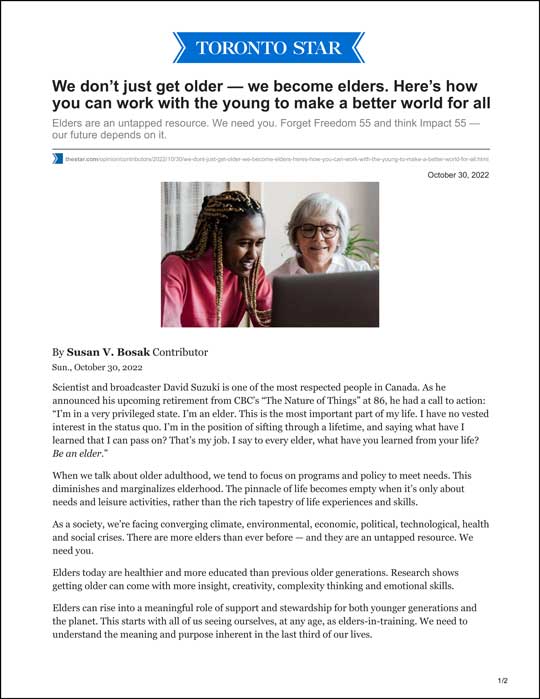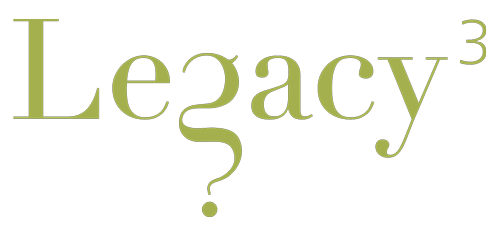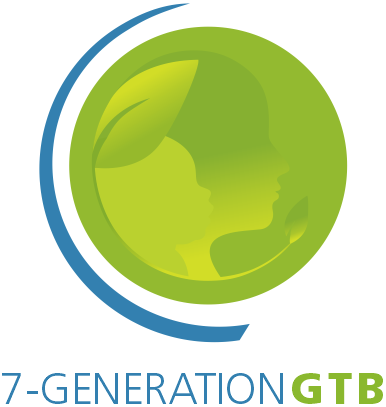
EMPOWERING
One thing that really matters is the responsibility we all have to the generations that came before us and the generations that come after us. This isn't about "leaving" a legacy – it's about living a legacy. 70% of older adults say they want to create a positive legacy.
If you have a curious mind, a caring heart, and an interest in stewarding the environment and the next generation, join us as an Elder-in-Residence. There are opportunities to learn from and with other generations, and make a difference in the community through legacy projects. Your time commitment is flexible, many opportunities are virtual, and we provide an annual stipend.
 Legacy Project Founder
Legacy Project Founder
Through the 7-Generation initiative, we're empowering older adults to connect their own life stories – what matters to you – into the bigger story of lifetimes across generations for the ecopsychosocial wellbeing of all – you, us, and the planet.
The term "7-Generation" has a double meaning. It draws on the Indigenous concept of holistic, long-term thinking across seven generations while at the same time reflects the modern context of a historic demographic shift to more living generations. For the first time ever, you are likely to personally know seven generations in your family and/or community: your own generation; three before you (parents, grandparents, great-grandparents); and three after you (children, grandchildren, great-grandchildren). There is comfort, insight, and power in these relationships.
 You may see yourself as an elder – or an elder-in-training. Many universities have brought in Elders-in-Residence over the last few years. Joanne Dallaire became an elder at Toronto Metropolitan University. An elder doesn't have to be a certain age. Jokes Dallaire, "although there is the assumption that we accumulate wisdom as we grow older, there's no guarantee on that one."
You may see yourself as an elder – or an elder-in-training. Many universities have brought in Elders-in-Residence over the last few years. Joanne Dallaire became an elder at Toronto Metropolitan University. An elder doesn't have to be a certain age. Jokes Dallaire, "although there is the assumption that we accumulate wisdom as we grow older, there's no guarantee on that one."
Elders-in-Residence is about a meaningful role for older adults in a society that needs wisdom as we face so many big challenges. "We are drowning in information, while starving for wisdom," observed ecological thinker E.O. Wilson. We can discover that wisdom as generations explore together.
We're creating an intergenerational Bioregional Learning Center (BLC) with a learning network across the bioregion that includes libraries and schools.
Elders-in-Residence connect into local schools to make a difference in the lives of students and in the community. This follows the ethos of the groundbreaking Intergenerational School in Cleveland, OH.
Meet one of our Elders-in-Residence, Jim Brown:
We provide an annual stipend, support, and learning opportunities for Elders-in-Residence. If you're interested, you can also be part of the 7-Generation GTB Circles of Activity. Your time commitment can be flexible, and many opportunities are virtual.
As we evolve this new role, we draw on the work of Marc Freedman, Erik Erikson, Mary Catherine Bateson, John Kotre, Zalman Schachter-Shalomi, Harry R. Moody, David Snowdon, and Bill Thomas. We're working with York University, University of Toronto, McMaster University, and Trent University to research this leading-edge approach. You have an opportunity to connect with amazing people both locally and internationally.
The two Elder Ambassadors for 7-Generation GTB are The Honourable David Crombie (former Mayor of Toronto, MP, and author of the seminal 1992 Regeneration report that defined the local bioregion) and The Honourable Pauline Browes (former federal Minister of the Environment). Both were instrumental in the formation of the Greenbelt and Rouge National Urban Park, and continue as respected leaders in the community.
In a changing world, as we create new life maps, there are no prescribed role models to follow, no guideposts, no rigid rules or obvious rewards. As more people live longer, Elders-in-Residence is about co-creating a vision of what it means to live a life.
This is a once-in-a-generation learning and stewardship opportunity.
Are you interested in finding out more about being an Elder-in-Residence? E-mail Brian Puppa, Executive Director at the Legacy Project, or call us at (905) 852-3777.

